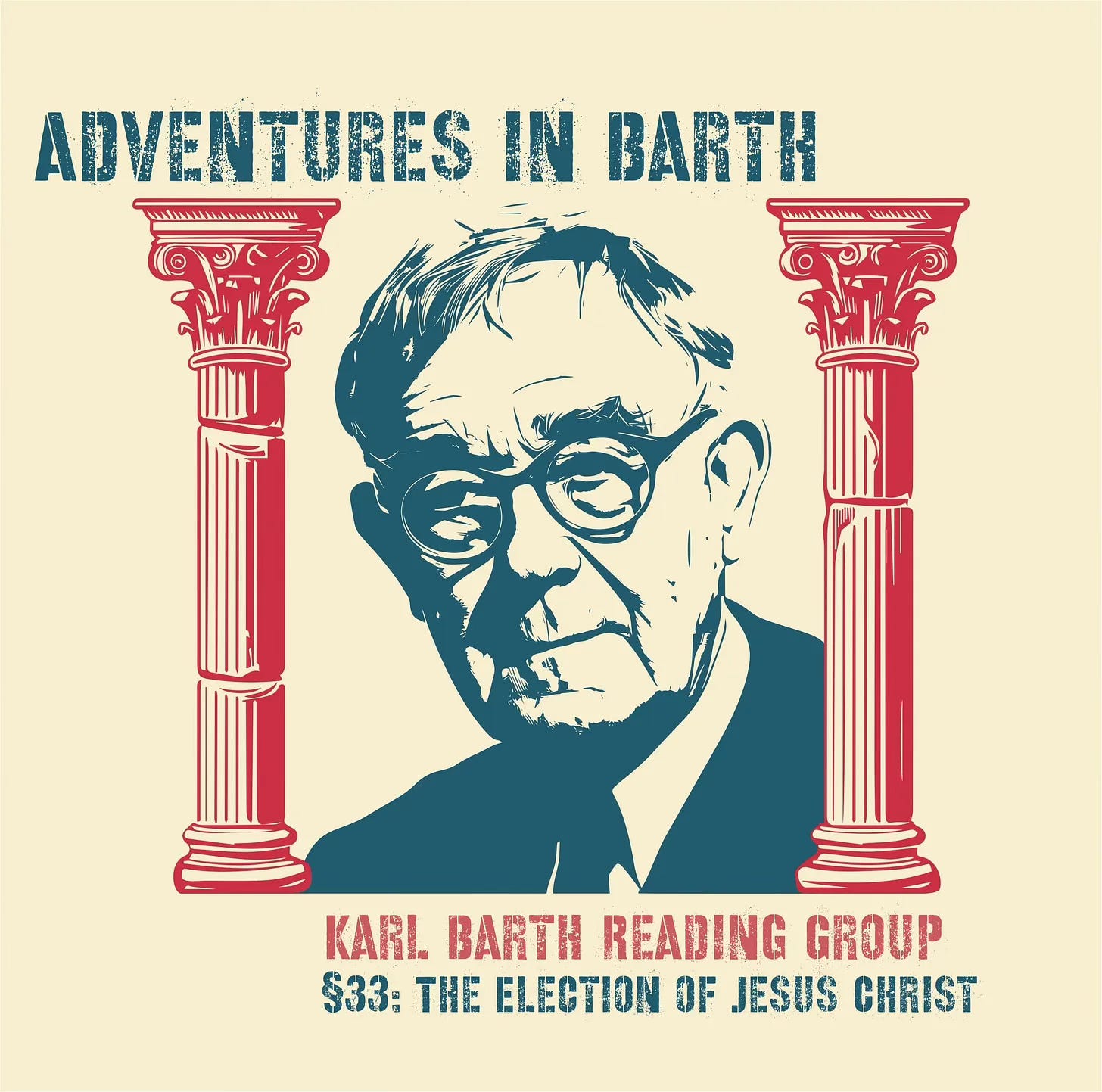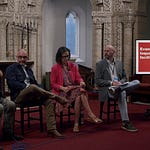I am excited by the feedback I’ve received from some of you listening, viewing, and reading along with us.
If you’d like to join us on Mondays at 7:00 EST, the link is always THIS.
And here is the PDF of Barth’s Church Dogmatics: II.2.
We will start section 2 of §33 on Monday, up to around page 150 in the PDF:
Show Notes
Summary
In this conversation, Jason Micheli and Marty Folsom discuss the concept of election in relation to Jesus Christ. They explore the role of Satan in the divine drama and how he helps make sense of redemption. They also discuss the inversion of Luther's distinction between law and gospel, with Bart emphasizing that the gospel comes first and the law is the outworking of living according to the gospel. They address the apparent contradiction between God's will for all to be saved and human freedom to reject salvation. They also touch on the idea of radical sanctification and the permanence of God's promise in the face of human sinfulness. In this conversation, Marty Folsom and Jason Micheli discuss the concepts of sin, sanctification, and being in Christ. They explore the idea that humans are both completely sinners and completely saints, living in the tension of both. They also delve into the concept of headship, with Jesus Christ as the electing God and the elected man who is the source of life for the church. They discuss the depth of being in Christ and the interpenetration of lives. They also touch on the topics of God's providence, predestination, and grace.
Takeaways
The concept of election in relation to Jesus Christ is explored, highlighting the role of Satan in the divine drama and the idea of redemption.
Bart inverts Luther's distinction between law and gospel, emphasizing that the gospel comes first and the law is the outworking of living according to the gospel.
The apparent contradiction between God's will for all to be saved and human freedom to reject salvation is discussed, emphasizing the permanence of God's promise.
The concept of radical sanctification is explored, highlighting that it is God's work in restoring humanity to their true family of origin.
The conversation also touches on the honesty of the Old Testament in addressing human sinfulness and the need for Christians to be honest about their own transgressions. Humans are both completely sinners and completely saints, living in the tension of both.
Jesus Christ is the electing God and the elected man, and He is the source of life for the church.
Being in Christ brings depth and interpenetration of lives.
God's providence accompanies all of creation at every moment, providing for its existence and sustaining it.
Predestination is not about God arranging eternal salvation or damnation, but about God's intentional and loving presence in all of creation.
Grace is not an abstract concept, but the personal presence of Jesus, who loves us despite our failures.
Sound Bites
"The nature of sin and evil and Satan lives within that world that is only there because God loves and God loves in freedom."
"The only way that we can affirm the reality of Satan and evil is because Jesus deals with it."
"Radical sanctification is God turning us towards himself."
"What's at stake and keeping it personal is, is"
"What does unpack what that phrase means?"
"The more times you can do that, the more there is a sense of depth"





















Share this post